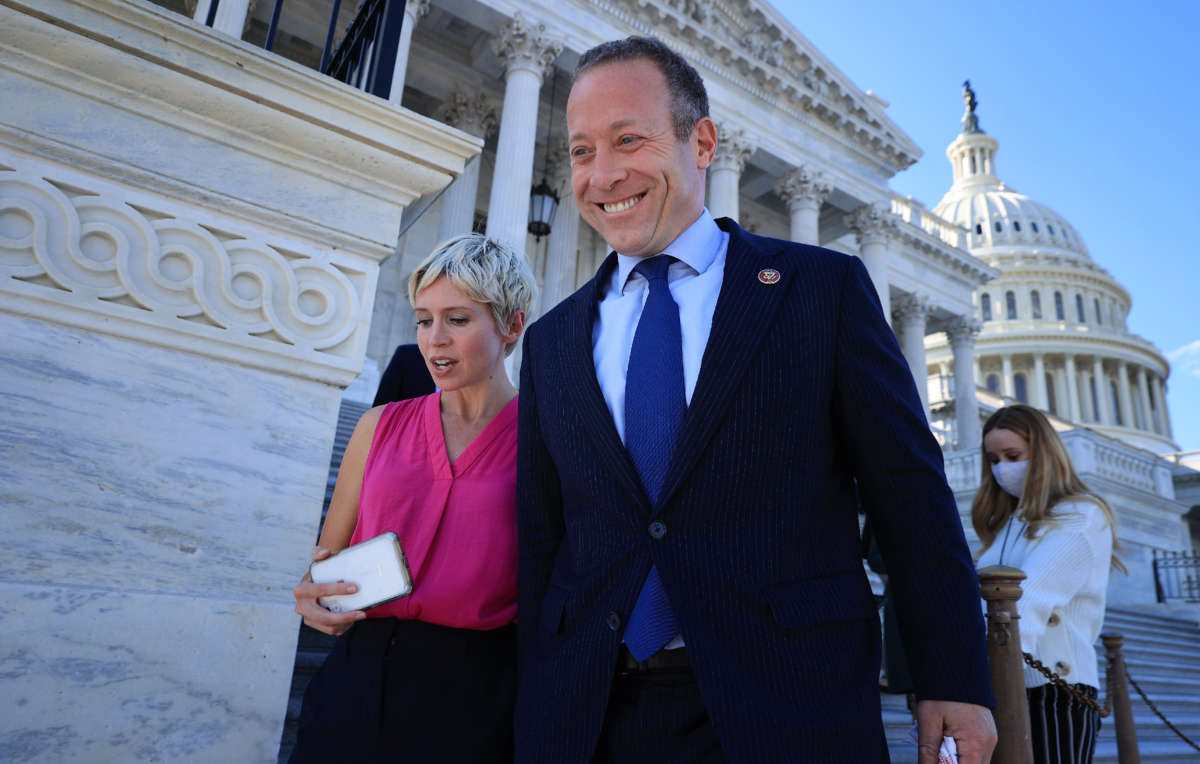House Democrats have unveiled a new state and local tax (SALT) cap reform proposal, just before the chamber is set to vote on both the reconciliation and bipartisan infrastructure bills on Friday.
The new proposal, which was unveiled late Thursday, would raise the amount of money that individuals can deduct from their federal income tax based on their state and local taxes. The amount would go from $10,000 to $80,000, a limit that would remain until 2030. As lifting the SALT cap largely benefits the top wealthiest 10 percent of Americans — especially the top 1 percent — raising the cap would give the wealthy an even bigger tax cut than Republicans gave them in the party’s 2017 tax overhaul.
Conservative Democratic Representatives Josh Gottheimer (D-New Jersey), Thomas Suozzi (D-New York) and Mikie Sherrill (D-New Jersey) lined up behind the proposal, praising it in a statement on Thursday. House Speaker Nancy Pelosi (D-California) has set a vote for the Build Back Better Act and the Infrastructure Investment and Jobs Act for Friday.
The bills, which represent a small portion of President Joe Biden’s agenda, have been whittled down by trillions of dollars to about $2.3 trillion total in new spending. This is significantly lower than the $4 trillion that Biden had proposed in the spring and an even more drastic departure from the $6 trillion or $10 trillion that progressives originally proposed. Many of the major taxation, social spending and climate proposals that progressive lawmakers had rallied behind are now excluded.
Despite enormous concessions to right-wing Democrats like Sen. Joe Manchin (D-West Virginia), conservative members of the caucus are still undecided about voting for the reconciliation bill, which includes proposals like paid family and medical leave and prescription drug price negotiation that could improve the lives of millions of Americans.
Some of the conservative Democrats want to put off voting on the bill, saying that they want to wait for cost analysis from the Congressional Budget Office (CBO) to discern how much the bill will cost and whether or not it will add to the deficit. They want external confirmation of Democrats’ estimates that the bill will be fully paid for — or so they say.
If it’s the price of the bill that conservative Democrats are concerned about, then their support of the partial SALT cap repeal stands directly in conflict with their purported concern.
Earlier this week, Democrats were considering fully repealing the cap for five years, which would cost an estimated $475 billion over five years and potentially $1 trillion over 10 years, if the proposal was extended. $475 billion is nearly the entirety of the cost of the bipartisan infrastructure bill, with about $550 billion in new spending — but over half of the timeline of the infrastructure bill’s 10-year proposals.
It’s unclear how much the new proposal costs, but it does appear to be included in the version of the bill that will be presented to the House on Friday. With cost offsets included in the reconciliation bill framework presented recently by officials, the White House estimates that the government would actually come out about $250 billion ahead of the spending in the bill. However, the new proposal may tip the scales and force the bill to add to the deficit.
Join us in defending the truth before it’s too late
The future of independent journalism is uncertain, and the consequences of losing it are too grave to ignore. To ensure Truthout remains safe, strong, and free, we need to raise $43,000 in the next 6 days. Every dollar raised goes directly toward the costs of producing news you can trust.
Please give what you can — because by supporting us with a tax-deductible donation, you’re not just preserving a source of news, you’re helping to safeguard what’s left of our democracy.
